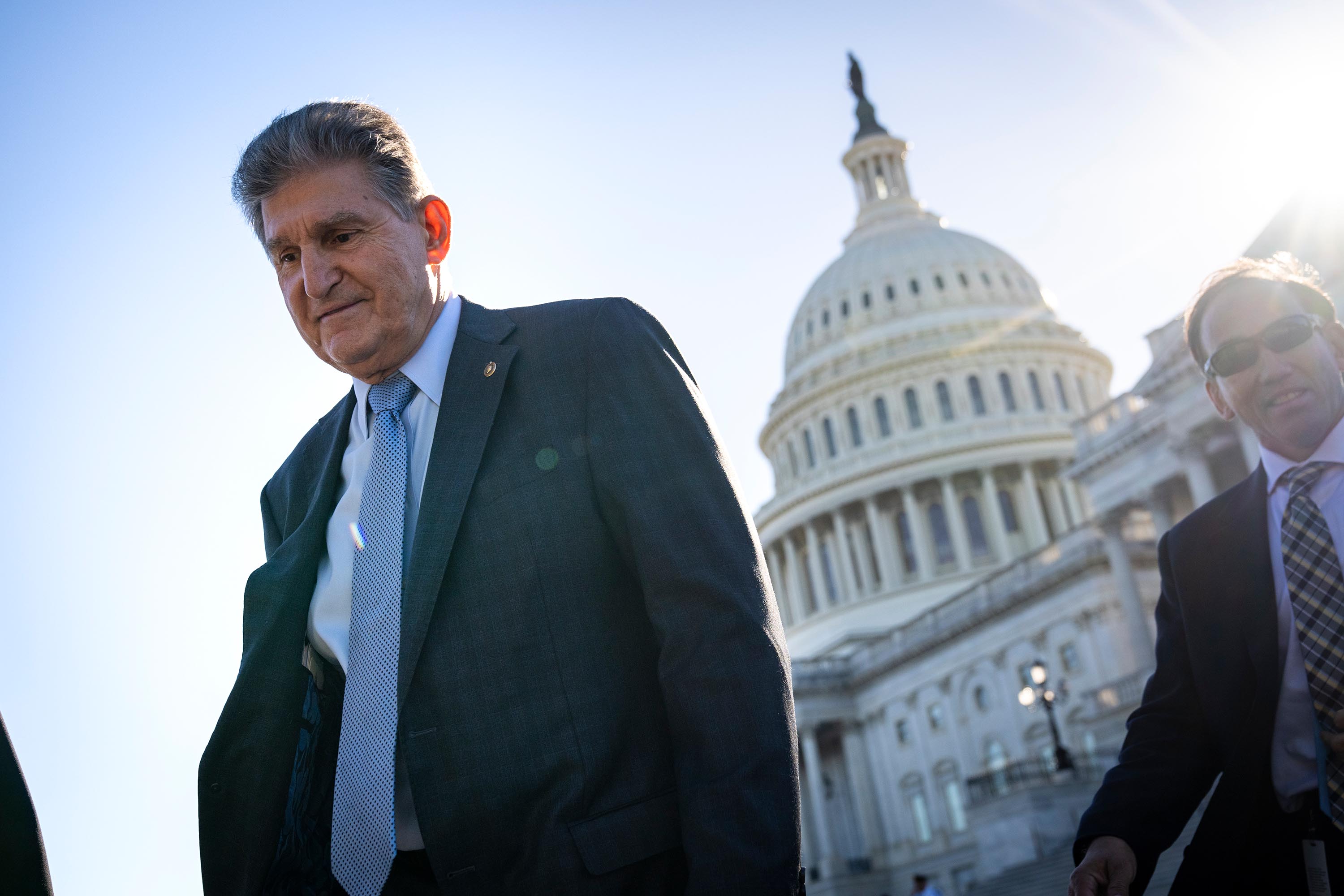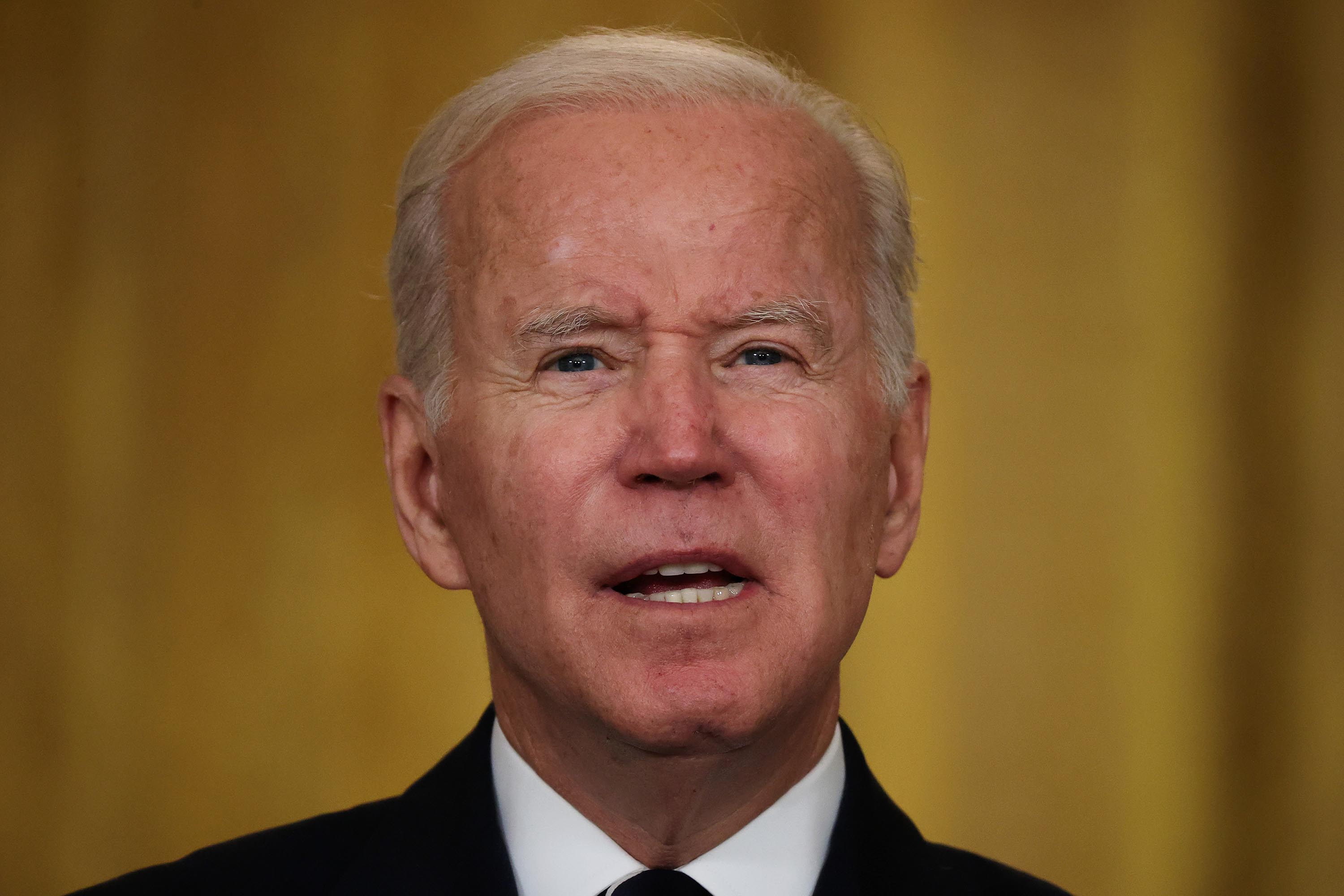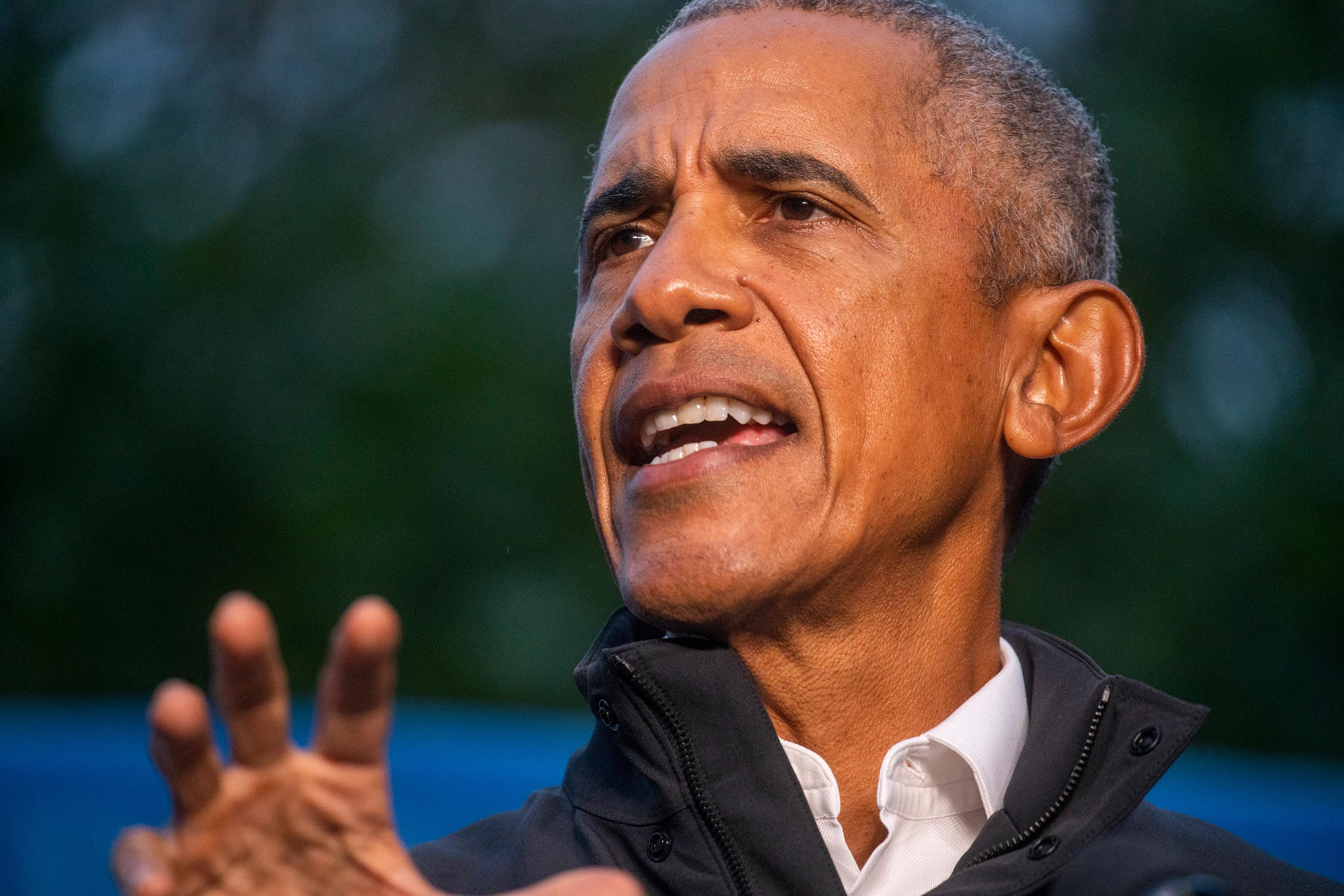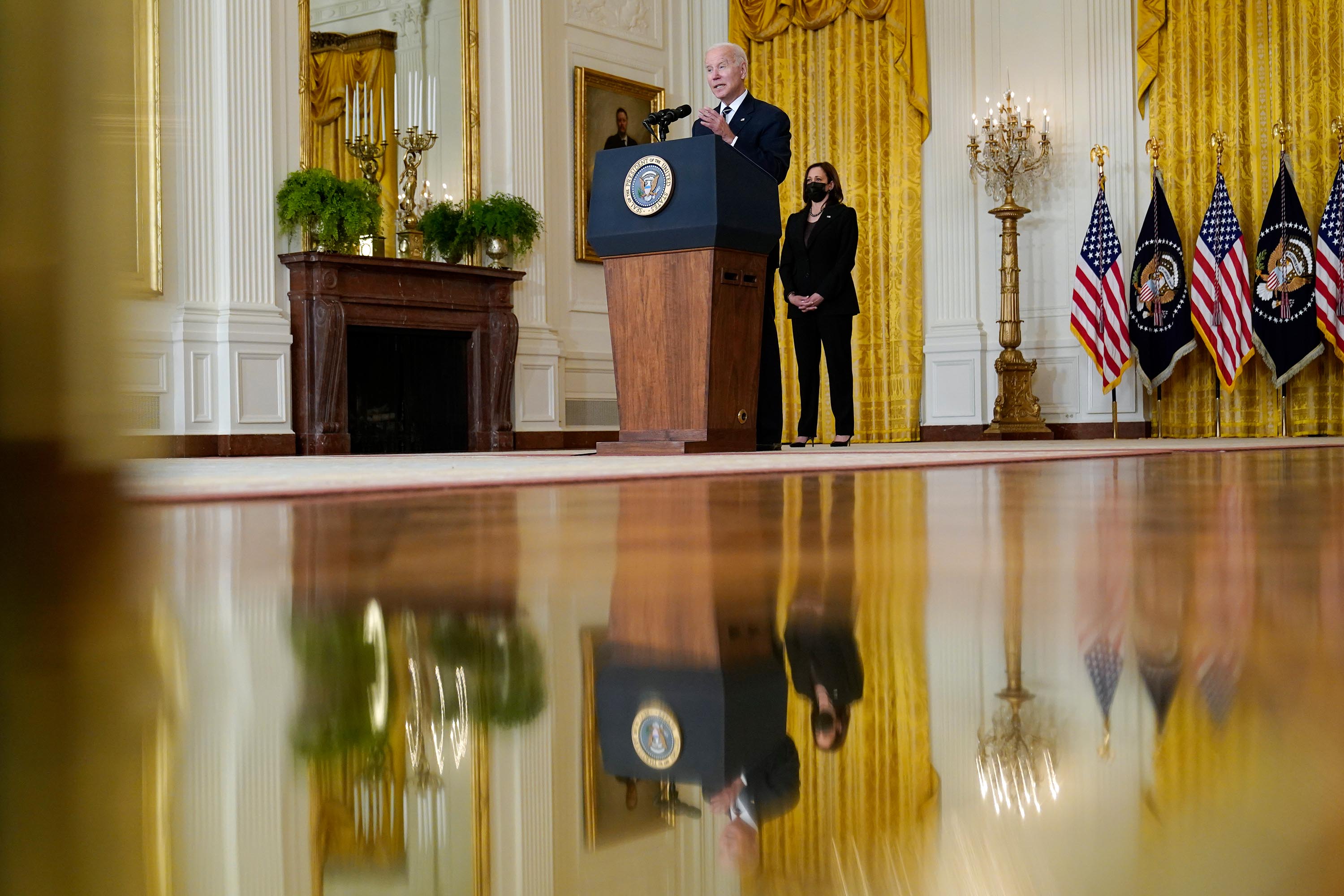In the framework released Thursday, the White House listed several ways it would fully pay for the $1.75 trillion budget reconciliation package.
The Democrats have fractured over measures to cover their sweeping spending proposal. Initial plans to make companies and well-off Americans pay by raising the corporate tax rate and the top marginal individual and capital gains rates were scuttled by Democratic moderate Sen. Kyrsten Sinema of Arizona.
The party then floated a billionaire tax on the capital gains of the super-wealthy, but that quickly withered after resistance from another key Democratic moderate, Sen. Joe Manchin of West Virginia, and several others in the Senate and House.
Here’s the latest plan:
- Corporate taxes: The framework would put in place a 15% minimum tax on the corporate profits that large companies report to shareholders, not to the Internal Revenue Service. This would apply to companies with more than $1 billion in profits. The proposal also includes a 1% surcharge on corporate stock buybacks. Also, it would impose a 15% minimum tax, calculated on a country-by-country basis, that American companies pay on foreign profits, consistent with an agreement Biden recently won among 136 countries.
- Taxes on the rich: The wealthiest Americans would pay a 5% surtax on income above $10 million, and an additional 3% levy on income above $25 million. It would also close the loopholes to allow some affluent taxpayers to avoid paying the 3.8% net investment income tax on their earnings. And it would continue the limitation on excess business earnings.
- IRS enforcement: The plan would beef up IRS enforcement so that it can ensure that people are paying what they owe to Uncle Sam. The new enforcement would focus on Americans with the highest incomes, not those earning less than $400,000 a year.
- Rebate rule: The framework calls for blocking the implementation of a Trump administration regulation that would have changed the drug industry’s rebate system.
The corporate tax provisions would yield $800 billion, the individual tax measures $650 billion, the IRS investments $400 billion and the rebate rule $145 billion, according to White House estimates.











